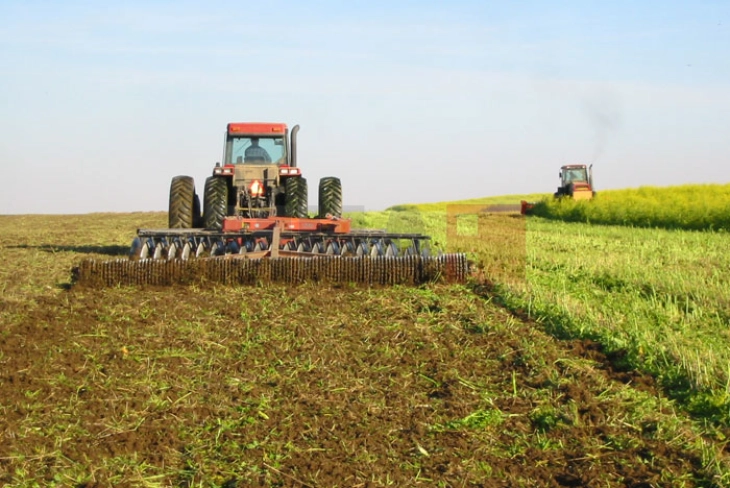Advance payment, basic and additional support – a new model of subsidies in agriculture

Skopje, 13 October 2022 (MIA) – Minister of Agriculture, Forestry and Water Economy Ljupcho Nikolovski presented Thursday the new model of subsidies in agriculture at a joint press conference with Prime Minister Dimitar Kovachevski.
Nikolovski stated that the new model offers a solution to all of the identified weaknesses of the current subsidy system. The new model does not reduce the current support, but it redistributes it in several programs with the aim of achieving greater efficiency and timely payment.
According to the new model, which the Minister presented Thursday morning at a government session, there will be greater control and additional conditions for receiving financial support, thus eliminating the possibility of irregularities and increasing productivity, while the Payment Agency will receive a longer period to run the controls through all the systems.
“We are replacing the old subsidy system through which farmers received subsidies without proof of production with a new one, which obliges them to show proof of production. We are adapting Macedonian agriculture to European standards. We are placing all entities in an organized system, thus lowering the chance of payments in cash, preventing the informal economy – a system that has an increased volume of control and a system that guarantees greater domestic production of food,” said Nikolovski.
As he explained, with the new subsidy model, farmers would receive an advance basic subsidy intended for the maintenance of the soil in arable condition. Any farmer who cultivates an agricultural area and submits an application while meeting the minimum criteria will receive the basic subsidy.
The new model will also provide advance payment of a portion of the basic subsidies for livestock farmers as well.
It will also have an additional subsidy for strategic crops and products. The additional subsidy is tied to the achieved yield, but also to the distribution of the products to registered domestic facilities or their use for own production of end products intended for domestic sale.
“The new model prioritizes strategically important crops and products in order to ensure a higher yield and lower the country’s dependence on imports. At the same time it directs domestic production towards domestic processing facilities, encouraging contract production,” underlined Nikolovski. ad/ik/







